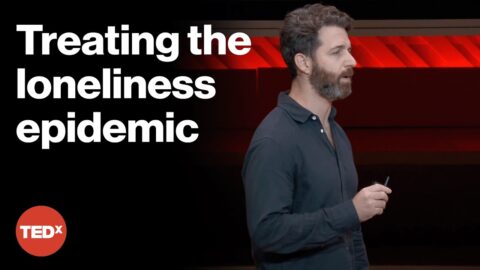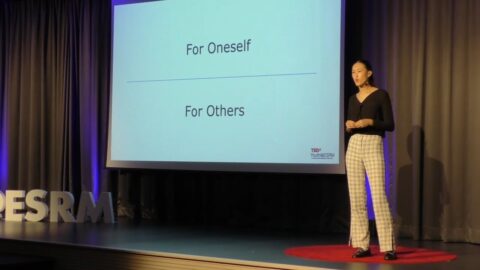Dr. Paul Budra reflects on the prevalence of conspiracy theories surrounding Shakespeare’s authorship and draws parallels to broader societal trends. He emphasizes how conspiracy theories often stem from a failure of imagination, where individuals struggle to conceive realities beyond their immediate perceptions or biases. Using examples ranging from flat earth theories to political disputes, he highlights the importance of empathy and social imagination in understanding differing perspectives. Ultimately, he advocates for literature and art as tools for cultivating empathy and combating the divisive effects of conspiracy thinking, urging viewers to embrace a more empathetic approach to understanding others.
Dr. Paul Budra is a Professor of English at Simon Fraser University. He has published seven books and numerous articles on Shakespeare, early modern literature, and contemporary popular culture. He is a past president of the Pacific Northwest Renaissance Society, former Chair of the English Department, former Associate Dean of the Faculty of Arts and Social Sciences, and winner of the SFU Excellence in Teaching Award for 2004. Every summer he lectures on Shakespeare at the Bard on the Beach Shakespeare Festival in Vancouver, BC.
This talk was given at a TEDx event using the TED conference format but independently organized by a local community. Learn more at https://www.ted.com/tedx
Views: 0














At what stage does a mountain of circumstantial evidence become proof?
Many a man was found guilty, and hanged, on such evidence. The threshold for proof – ‘beyond reasonable doubt’.
The circumstantial evidence for the Stratford man is not insignificant. But there is no doubt that the Stratford link has been hugely embellished. And despite a huge amount of research and effort nobody has found a single item of evidence that Will of Stratford was a writer. This is unique amongst his contemporaries – no conspiracy here. Some graphologists have declared it likely that he could not write at all based on the only known handwriting – six signatures which are all problematic. His parents were illiterate as were his daughters (two Susanna Hall signatures are suspected to have been ‘drawn’, not uncommon back then, and we have nothing else but ‘marks’ from his parents and other daughter).
There was definitely a link between the man of Stratford, the theatre and the publication of the plays, but there is zero evidence that it was he that wrote them.
In the meanwhile the mountain of circumstantial evidence for alternatives grows ever higher.
The evidence for Shakespeare as the author of his works is not only circumstantial. It is also direct, not that such distinctions really matter.
At least 20 well-placed contemporaries identified Shakespeare the poet in ways which can only refer to the actor and gentleman from Stratford. Many more referred to him by his name, which is usually enough to identify someone, unless you’re a conspiracy theorist looking for a way out.
He left three pages of a play manuscript in his handwriting, which is more than we have for most other writers of the era.
He peppered his plays with references to people, places, and events from his home town.
Everything he wrote specifically for publication was printed by a kid he grew up with in Stratford.
Everything he wrote for the stage was performed by his acting company in theaters he partly owned.
Nobody ever said he wasn’t the author of his works. Nobody ever said anyone else was.
Soon after he died, a monument was installed over his grave which referred to him a great poet.
The case for Shakespeare is about as comprehensive as one could possibly expect after 400 years.
Those who look for biographical similarities to this person or that, who hunt for codes, and who surmise that a middle-class gentleman of the 17th Century couldn’t have known things about his world that we know even today are simply deluded.
Those who manufacture expectations, mistranslate Latin, invent history, and pretend evidence doesn’t exist are, quite simply, liars.
Thanks for sharing such valuable information! Just a quick off-topic question: My OKX wallet holds some USDT, and I have the seed phrase. (alarm fetch churn bridge exercise tape speak race clerk couch crater letter). How can I transfer them to Binance?
I see thy that hoed my ted space
SIMPS: you were forced to learn the queen’s English and modernized yourself to it which after time you lose the primary use of sound which was distorted poetry in language to hide theme of intent to learn of performers hold ideals to rebuke the hierarchy.
This effing guy.
Misrepresents the evidence.
Straw-Man’s the opposition.
Attacks the misrepresented straw-man opposing point of view as a conspiracy theory.
If there was a single piece of primary source evidence that showed the man from Stratford was a writer, then he would have presented it.
But he doesn’t.
Instead, he says that anyone who wants to see evidence like that (evidence of being a writer, just like that which exists for every other writer of the period) is “lacking imagination.”
Wow. Well put, genius.
He wasn’t trying to prove that Shakespeare wrote Shakespeare. He was pointing out the conspiracy theory features of your beliefs.